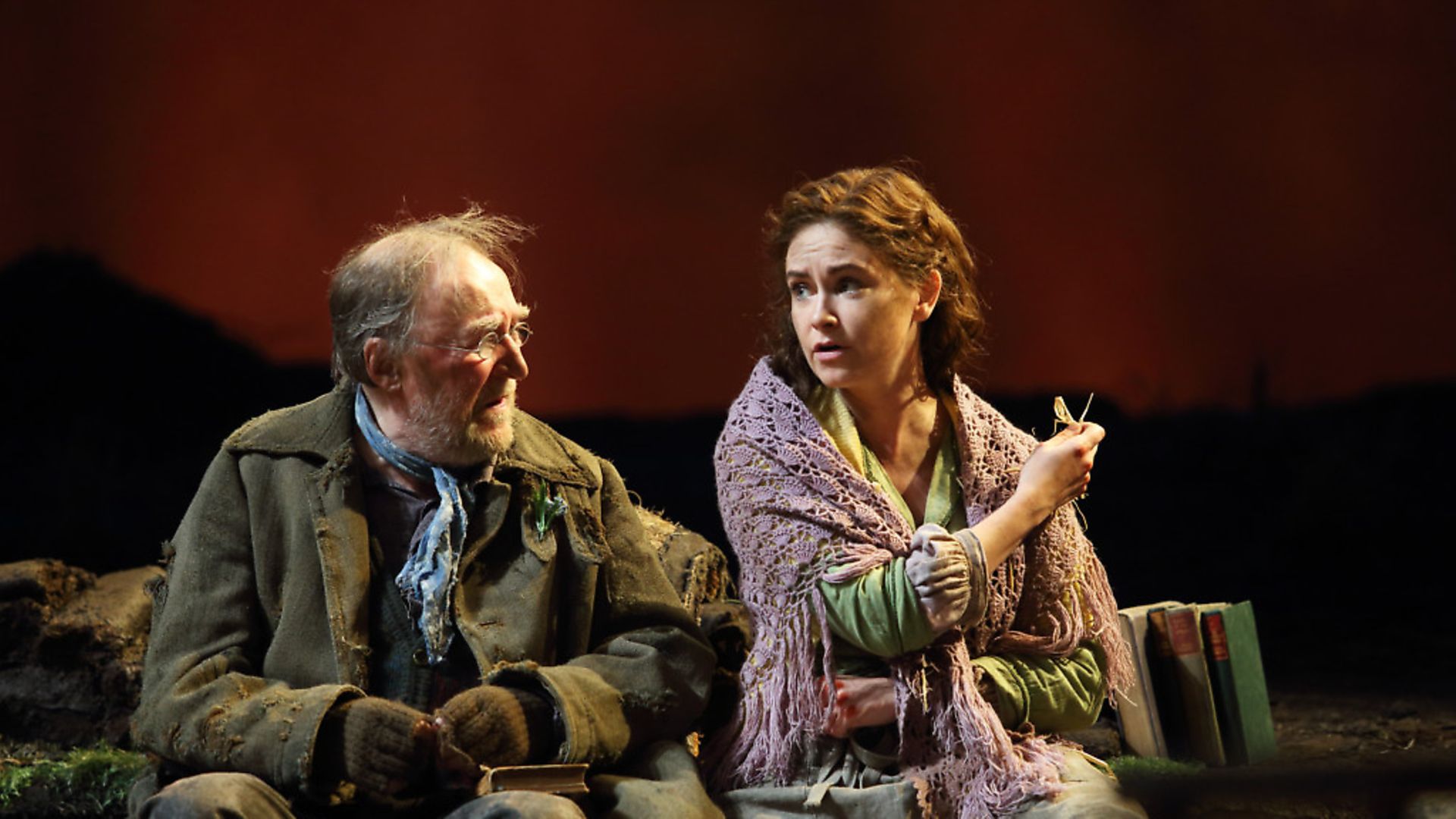
TIM WALKER reviews Brian Friel’s Translation at the National Theatre.
The grizzled old Jimmy Jack Cassie laments in Brian Friel’s play Translations: “I’m a barbarian in this place because I’m not understood by anybody.”
All any of us ultimately want in life is to be understood – that’s how we establish our identity – but all too often it proves elusive. These days I look around me and see people whose identities have been swallowed whole by their political parties, the newspapers that they work for, their ideologies or they are just simply allowing themselves to be what their peers or those that pay them want them to be.
Friel’s timely work happens to be set in 1833 in Baile Beag in rural Ireland, where language and identity have become battle grounds in an epic struggle for supremacy. British soldiers are engaged in drawing up an Ordnance Survey map, which involves the systematic anglicisation of Irish place names. The problem is these names have emerged from the history of the place – there are old stories associated with the names of even the tiniest of hamlets – and it is proving easier said than done to impose an identify upon a place that already feels one strongly.
There is also the issue of language: the soldiers want to be understood so they want English to prevail at all costs.
Irish plays have a tendency to start slowly and this one is no exception, but Friel uses the time wisely, establishing his characters with painstaking care. The setting is an old hedge school, where the classes are conducted in Irish, so that when Jack Bardoe, as the scarlet-uniformed Lieutenant Yolland, strides on to the scene, he needs a translator and finds one in the wild-haired teacher’s son Owen (played by Fra Fee).
Yolland is no stereotypical English imperialist, but a sensitive soul who got into the army by chance, and, before too long, he has fallen in love both with the land and Judith Roddy’s spirited local girl Maire. He takes off his jacket, loosens his starched shirt and starts to find out who he really is.
I loved Rae Smith’s evocation of rural Ireland – her set is a huge expanse of wild Irish countryside – and the largely venerable actors who traverse it feel as if they’ve lived on it all their lives. Dermot Crowley is on great form as the lugubrious Jimmy Jack Cassie – feeling a foreigner in his own land – and Ciarán Hinds as the old teacher Hugh makes the most of his character’s love of language and the ancient Latin upon which it’s derived.
It is, however, Roddy as Maire who impresses the most as she gradually falls in love with Lieutenant Yolland. In a profoundly moving scene, they express their love for each other in their native tongues, which makes the point that it’s never necessary to impose our own identities upon others. Love does indeed conquer all.
Warning: Illegal string offset 'link_id' in /mnt/storage/stage/www/wp-includes/bookmark.php on line 357
Notice: Trying to get property 'link_id' of non-object in /mnt/storage/stage/www/wp-includes/bookmark.php on line 37







